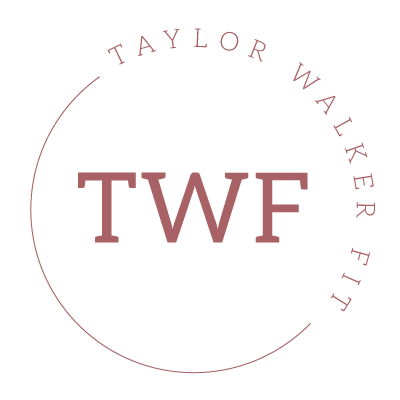
Say hello to College Taylor C. 2007 vs Healthy Taylor 2016
Happy “Friday Eve” my friends. I am back today with Baptist Health South Florida to discuss a condition I struggled with for years….ACID REFLUX. My pre-health and fitness days were spent dancing, enjoying large cheese pizzas and gorging on weekly trips through the drive through. I was popping little white chalky pills almost every day before splurging on two-week packs of Prilosec and trips to the gastroenterologist. After laying on my side, drinking this gross drink and watching acid pour out of my stomach, I knew I was ready for a change. Up until this point I relied on a fast metabolism and consistent dance training to keep me in tip top condition.
By the time I was twenty five I was working a traditional teaching job, commuting to work at 6:30 AM, no longer dancing or moving my body enough, but one thing remained consistent. My crappy diet! You see, at the time I did not understand that food wasn’t just meant to be tasty. It was meant to be used as fuel. The lethargy, acne, stomach pain and constant dark circles under my eyes were all signs that I needed to make a healthy diet a priority. It took about a year to rid my system of the junk food I constantly craved. Day by day I felt healthier, stronger and my acid reflux eventually disappeared into the abyss. It wasn’t until I read this article from Baptist Health South Florida that it reminded me of how important it is to fuel your body with nutrient dense whole foods. And guess what….when you do indulge it is that much more rewarding! Make sure to read on for more tips from Family Medicine Doctor: Christopher da Fonseca, M.D. on how to rid your acid reflux naturally.
Over-the-counter or prescribed pills to treat acid reflux, also known as GERD (gastro-esophageal reflux disease), are widely used. But studies have shown that the prolonged use of these meds can increase the risk of developing other health problems.
Physicians are increasingly guiding patients with acid reflux in another direction which can alleviate the production of excessive stomach acid without meds – and improve overall health as well. Lifestyle changes that include weight management and modifications to diets can reduce or eliminate GERD symptoms.
Video by George Carvalho and Alcyene C. de Almeida Rodrigues
GERD can be a chronic condition where stomach contents come back up into the esophagus, resulting in symptoms such as heartburn and the taste of acid in the back of the mouth. Risk factors include obesity, pregnancy, smoking, hiatus hernia, and taking certain medicines.
“It’s a common complaint,” says Christopher da Fonseca, M.D., a family medicine physician with Primary CareBaptist Health Primary Care at Palmetto Bay. “My job is to fully access the reason why they’re getting the dyspepsia (non-ulcer indigestion caused by acid reflux) or heartburn. I advocate what’s called lifestyle changes.”
Common Foods That Can Cause GERD
Creating a “food journal” and chronicling what you’re eating everyday is a good idea to determine what foods are triggering the acid reflux or gastritis, which refers to the inflammation or irritation of the stomach lining and can result in acid reflux among other symptoms, says Dr. da Fonseca.
Some foods that can cause acid reflux are very common in the American diet, including tomatoes, citrus fruits, spicy foods and excessive amounts of caffeine or excessive alcohol, he says.
Weight and Other Factors
Other measures you can take to reduce acid reflux that do not require medications include losing weight, quitting smoking, and staying upright for at least two hours after a meal.
“Basically, gravity is working against you,” says Dr. da Fonseca. “By staying upright for about two hours, you’re letting the acid go through the natural process. When you’re laying down, it has a tendency to rise up your esophagus.”
Several studies have indicated that long-term use of meds to treat GERD can increase the risks of other problems related to bone and kidney health. One reason may be that the drugs interfere with the body’s ability to absorb magnesium and other vital nutrients or minerals.
However, untreated acid reflux over time can cause inflammation of the esophagus (esophagitis), which increases the risk of pre-cancerous cells in the esophagus. The bottom line: It’s best to adopt lifestyle changes to avoid having to take pills with uncertain, long-term side effects.
“Sometimes patients want me to prescribe a pill,” says Dr. da Fonseca. “I tell them there are things you can do that don’t require medication and let’s focus on the things you can change over the next three months.”
Watch the video now as Dr. da Fonseca talks more about lifestyle modifications that can help prevent or relieve acid reflux.
Lifestyle changes are not easy to make, but what I can tell you is that they are worth it! My diet is far from perfect. I still eat burgers, but not from the drive through. I still drink, but my college days are over, and you won’t find me at the bars five nights per week. Take baby steps, and before you know it you will be living a happier healthier lifestyle mind, body and soul! Make sure to head over to Baptist Health South Florida’s website to read tons of great articles on everything from nutrition to community outreach and medical research.



